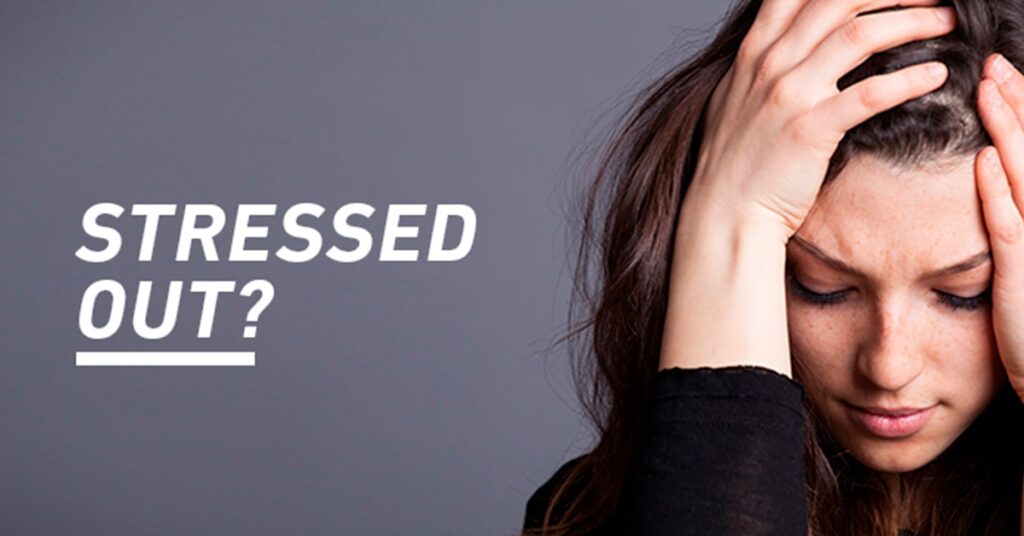
We all know what stress is and that it’s bad for us… or do we really? Sure, we’ve heard it can harm our health and that we should practice deep breathing, yoga or meditation.
But of course it goes far deeper than that. Let’s take a closer look at this potent word, especially because April is the 25th anniversary of National Stress Awareness Month (started by The Health Resource Network, Inc., a non-profit health education organization).
What Is Stress Exactly?
Anything that poses a challenge or a threat to our well-being is a stress, according to Medical News Today.1 When we are overwhelmed and don’t think we can handle the pressure, we say, “I’m stressed.”
Stress is the way our brain and body respond to demand
According to the National Institute of Mental Health (NIMH).2 It’s how people cope with stress or recover from stressful events that can make it harmful or not. Your physiological state is affected when faced with stress. We’ve all heard of the “fight or flight syndrome.” The fight part is your body’s sympathetic nervous system reacting to a stressful event and it activates resources to protect you by either getting you away quickly or fighting, as per the NIMH.3 At this point, larger quantities of “the chemicals cortisol, adrenaline and noradrenaline are produced, which in turn trigger a higher heart rate, heightened muscle preparedness, sweating and alertness.”4
It’s Our Response to Stress that Matters
People will feel a demanding situation is stressful if they think they cannot effectively handle it. When trying to manage stress, “It is important to learn that what matters more than the event itself is usually our thoughts about the event. How you see that stressful event will be the largest single factor that impacts your physical and mental health”, states the NIMH.5
So What Happens to Our Health?
Health problems can occur if the stress response goes on for too long, becomes chronic or if the stress response continues after the danger has subsided. Chronic stress can suppress immune, digestive, sleep and reproductive systems. People under chronic stress are prone to more frequent and severe viral infections as well.7
Routine stress may be the hardest type of stress to notice because the body gets no clear signal to return to normal functioning.8 Over time, continued strain on the body may contribute to serious health problems, such as heart disease, high blood pressure, diabetes and other illnesses as well as mental health problems like depression or anxiety.9
Combatting the Toll of Stress
“When stress starts to turn chronic you have to fall back on essential health basics, like good sleep, exercise and diet, to keep the body and mind strong,” says Brent Agin, M.D., CEO, Trim Nutrition and member of MONAT’s Scientific Advisory Board. “Too many times people get out of their routine, which is the key to stress management. They either will not eat or will overeat, stop exercising and often find they’re experiencing interrupted sleep. All these factors compound the effects of stress on the body. You don’t want your body to get out of control since that will quickly affect your mind as well and you can find yourself in an even tougher emotional spot.” Dr. Agin emphasizes that if stress becomes too overbearing, despite maintaining a healthy lifestyle, one should seek medical help.
Dr. Agin says there’s always time to exercise even if you work a full 12-hour day. He reminds us that it only takes 30 minutes to effectively exercise if using a proper routine. Plus, you only need to exercise three or four days a week to get benefit. “Sometimes just putting headphones on and taking a short walk can help reduce stress and allow mental breaks,” he adds.

Brent Agin, M.D., CEO, Trim Nutrition
MONAT Global Scientific Advisory Board Member
Eating properly goes a long way toward minimizing the effects of stress.
“It goes back to the cliché ‘You are what you eat.’ You need to eat a balanced diet of good fats, protein and healthy carbs,” Dr. Agin explains. “During times of stress, your body needs fuel. It’s critical to be on an anti-inflammatory diet that will fuel the body and not exacerbate the stress and inflammation that chronic stress can create.
“In addition, tart cherry, GABA, B vitamins, magnesium, theanine and taurine are supplements that have been proven to help your body better deal with stress,” Dr. Agin adds.
Be careful not to wear out your friends with complaining. It can get to the point where they can’t listen anymore. In that case, Dr. Agin advises finding personal time to think through your problems. Walk, swim, bike or just walk your dog. This gives you time to process and figure out possible solutions to your issues. Then you can talk to your friends about potential solutions rather than ranting on about problems which, in turn, encourages collaboration.
Stress certainly is not fun and can be harmful. But there are ways you can handle it better.
And sometimes, according to the Mayo Clinic, simply accepting what is and adapting to it is the best answer.10
1 Nordqvist, Christian. What Is Stress? How To Deal With Stress? Medical News Today. December 14, 2015. http://www.medicalnewstoday.com/articles/145855.php
2 Health & Education. 5 Things You Should Know About Stress. National Institute of Mental Health. https://www.nimh.nih.gov/health/publications/stress/index.shtml
3 Ibid.
4 Ibid.
5 Ibid.
6 Nordqvist, Op. cit.
7 Ibid.
8 Ibid.
9 Ibid.
10 Mayo Clinic Staff. Healthy Lifestyle. Stress management. http://www.mayoclinic.org/healthy-lifestyle/stress-management/in-depth/stress-relief/art-20044476
TAGS
KEEP READING
December 12, 2023
Changing The Winter Blahs Into The Winter Aahhhs!
August 10, 2023
Get Your Healthy Living Journey Back on Track!
May 13, 2021



